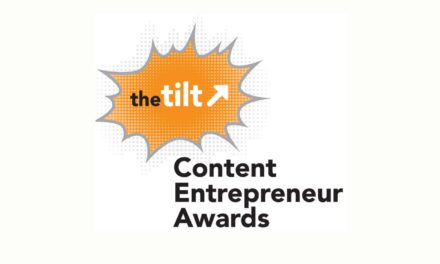I’ve always struggled to describe what I do. As a creator, how do I explain content entrepreneurship to people?
Am I a blogger? Or an author? Or an event producer? Or a podcaster? Do I run a newsletter? Am I in education and training? Am I a consultant? How about a keynote speaker?
Or do I talk about the industries I’m in? “I’m in marketing” is an easy, end-of-conversation answer. “I cover the creator economy industry” also stops the show.
The right answer to describing what I do is all of the above. To boil it down: I’m a content creator and entrepreneur.
Yet, most people don’t have a clue what that really means.
Do You Know These 5 Lies and 5 Truths About Content Entrepreneurship? via @JoePulizzi. #CreatorEconomy Share on XThey have an idea of what a content creator does and think that’s all content creators do: “Oh, you are a YouTuber.” “You post pictures on the Internet. You make money from that?” “You’re a writer? That must be tough …”
In The Tilt’s 2023 Content Entrepreneur Benchmark Research, 1K content creators gave in-depth answers about how they work and make money. Though we frequently talk about this research, we’ve never talked about the question I find most interesting:
What do people misunderstand about running a creator business?
Seventy percent of the surveyed creators went into quite a bit of detail. (I think that came about because they have a lot of frustration.) Reading through their responses, some creators should be in full-time counseling. (I’m sort of kidding, but sort of not.)
To break down that conversation, let’s look at five common misperceptions and five truths about content entrepreneurship.
5 lies about content entrepreneurship
1. Content entrepreneurship doesn’t take much time and energy
Non-creators don’t realize that content creation as a business (what we call content entrepreneurship) is 24/7. Even when you are not creating or distributing content, you are selling. You are thinking about the next idea or content project. Non-creators can generally leave their place of work and let go of thinking about their work. That’s almost impossible for content creators.
And to make a content business profitable? It takes a long time. The research shows it takes a content entrepreneur an average of 18 months to reach some profitability. After I, as a content creator, launched the Content Marketing Institute, it took over three years to break even. It’s a long game. Sadly, most people who create a content business give up before reaching profitability because they got into it thinking profitability wouldn’t take long. It always takes longer than you think.
2. People think it isn’t ‘real’ work
Most non-creators don’t see creating content as real work. But, even if that’s true (it isn’t), content entrepreneurs spend less than 50% of their time making the content. Most of their time is spent on marketing, sales, and administrative work.
I can’t tell you how many people have said something like, “It’s great you have so much free time and can work whenever you want.” Little do they know.
Lie about content entrepreneurship: It isn't "real" work. via @JoePulizzi. #CreatorEntrepreneur Share on X3. Once you create the content, you move to the next piece of content
When I conducted content marketing workshops, I always said, “Creating content without knowing how you are going to market is insanity.”
Creating the content is a small part of the process. Getting the content into the hands of your audience, encouraging them to engage with it, and seeing them change their behaviors are the bigger parts. If only content were just about creating pixels.
4. Content isn’t the revenue source; it just makes the products possible
Non-creators always wonder how the money is made. They don’t understand the content is the source of money. It creates the connections with the audience. It builds the trust. It enables the audience at some point to buy your book or course or hire you as a consultant. They don’t understand that skipping a newsletter, a podcast, or a video is like missing a month of work.
5. Content isn’t a real business
Let’s face it. Most non-creators think the idea of content as a business is silly.
But successful entrepreneurs, first and foremost, treat content creation as a business. They operate that business on a content-first model. You create content to build an audience and offer that audience a selection of products, which fuels the business.
Now, let’s review the five truths based on the rants shared by the creators in The Tilt’s content entrepreneur research.
5 truths about content entrepreneurship
1. It can be lonely
A variation of the loneliness theme occurred repeatedly in the survey’s open-ended responses. Life as a solo content entrepreneur can be awfully isolating. You need to acknowledge this as part of the work, especially in the early going if you’re used to working with a team and interacting with people daily.
This is one of the reasons why we created the Creator Economy Expo as an annual event. We all need to support each other in both our successes and challenges.
2. It’s not all sunshine and rainbows
More than 10 people included the sunshine-and-rainbows statement verbatim in their survey responses. Content entrepreneurship is an amazing business model. It may be the fastest-growing business in the world. That said, it ain’t peaches and cream all the time, right?
3. It’s about sales
Yes, you are in sales. That’s a wake-up call for all content creators. Most of the time, the content doesn’t sell itself. You need to get comfortable selling it. Sell it in emails, social posts, and even through calls (or, heaven forbid, face-to-face).
Say it with me, “I am in sales.” The sooner you get used to it being a necessary part of the job, the better.
Truth about content entrepreneurship: You're in sales. Get comfortable selling, says @JoePulizzi. #CreatorEconomy Share on X4. It means you could get ‘canceled’
As Bruce Banner (aka the Hulk) says in the original Avengers movie: “I don’t have a suit to hide behind. The suit is me. I’m exposed.”
Like it or not, you are out there, exposed, all the time. Part of the job is knowing that anything you say or do can be misconstrued, and, at that moment, the business could take a hit.
5. It’s incredibly difficult
In the movie Moneyball, general manager Billy Beane (Brad Pitt) tries to convince Scott Hatteberg (Chris Pratt) to join the team and switch positions. He also involves Ron Washington, aka “Wash” (Brent Jennings).
Billy: We want you to play first base for the Oakland As.
Scott: OK, well, I’ve only ever played catcher.
Billy: Scott, you’re not a catcher anymore. If you were, our call wouldn’t be the only one you got when your contract expired.
Scott: Yeah, hey, listen, no I, I appreciate it.
Billy: You’re welcome.
Scott: But the thing is that …
Billy: You don’t know how to play first base. Scott …
Scott: That’s right.
Billy: It’s not that hard, Scott. Tell him Wash.
Wash: It’s incredibly hard.
Content creators in The Tilt’s annual research were like Wash. Variations of “not easy” or “incredibly difficult” dominated the responses.
In the words of many of you, “It’s a lot of f***ing work.”
Should you want to be a content entrepreneur?
Given all those misconceptions and rants, is content entrepreneurship worth it? Absolutely.
I’ve been a content entrepreneur for 16 years. I don’t regret it one bit. That said, besides being a husband and father, it’s been the most difficult thing I’ve ever done.
Watch and learn from fellow serious content creators at the Content Entrepreneur Expo 2025. We are returning to Cleveland August 24-26, 2025. Register today! |
About the author
Joe Pulizzi is founder of multiple startups including content creator education site, The Tilt and is the bestselling author of seven books including Content Inc. and Epic Content Marketing, which was named a “Must-Read Business Book” by Fortune Magazine. Joe is best known for his work in content marketing, first using the term in 2001, then launching Content Marketing Institute and the Content Marketing World event. He has two weekly podcasts, the motivational Content Inc. podcast and the content news and analysis show This Old Marketing with Robert Rose. His foundation, The Orange Effect, delivers speech therapy and technology services to over 200 children in 34 states.










